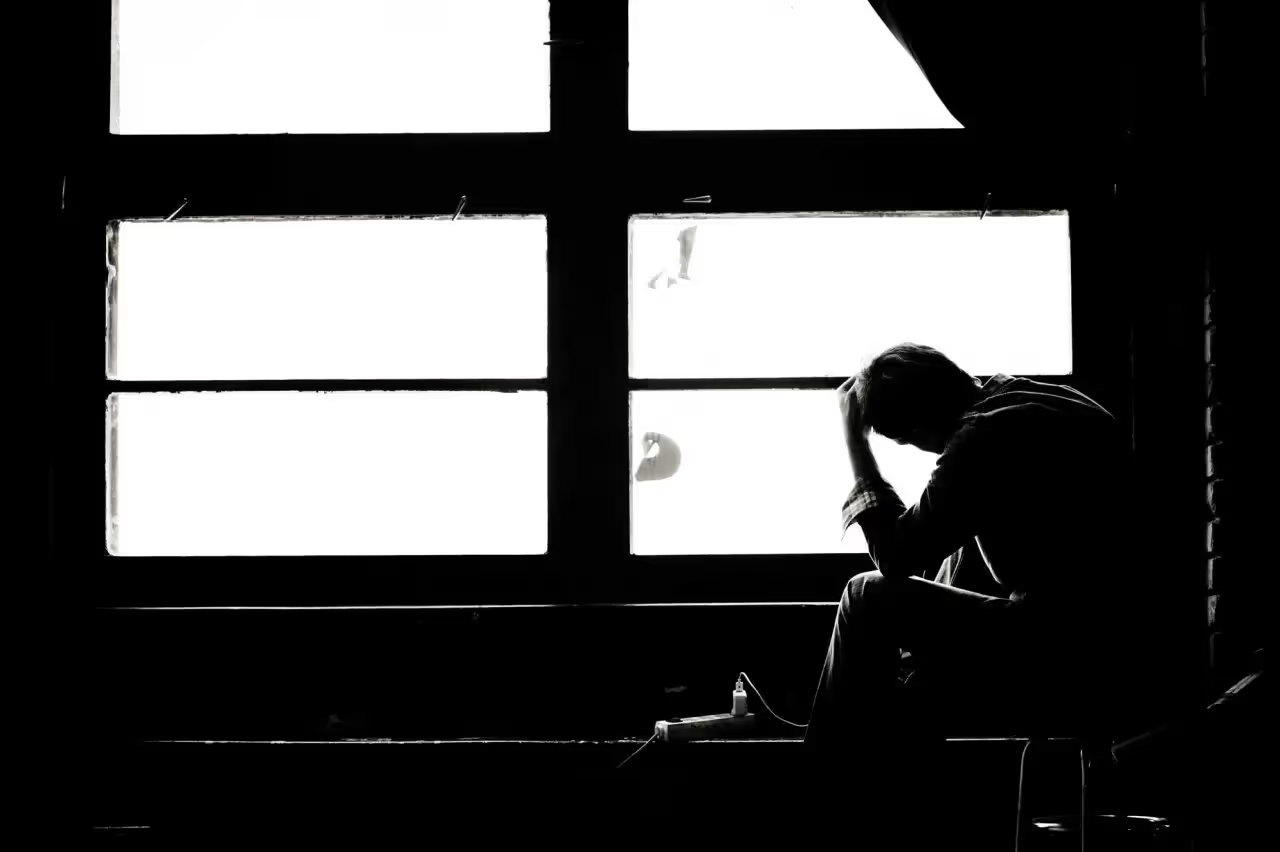The end of a relationship is always tough, but it can be especially difficult if you didn't want the relationship to end.Especially for those who have been...

The end of a relationship is always tough, but it can be especially difficult if you didn't want the relationship to end.
Especially for those who have been in a relationship for a very long time.
It's ok to try and find ways to help you navigate your feelings.
If you're struggling to cope with the grief of a breakup, here are tips that might help you through this tough time.
One of the most important things you can do after a breakup is to lean on your support system.
Whether that's your friends, family, or even a therapist, talking about what you're going through can help you process your feelings and start to move on.
If you don't have a lot of people in your life who can offer support, there are also online communities full of people who understand what you're going through and can offer advice and comfort.

It's important to allow yourself time to grieve after a breakup.
This means giving yourself permission to feel all the emotions you're experiencing, whether that's sadness, anger, confusion, or something else entirely.
It's okay to cry, yell, or vent to your friends about what happened.
Just make sure you're not spending all your time dwelling on the negative; eventually, you'll start to feel better.

When you're grieving, it's easy to neglect your own needs.
But it's important to take care of yourself both physically and emotionally during this time.
Make sure you're eating healthy foods and getting enough sleep, and take some time for yourself every day to do things you enjoy.
This will help you stay grounded and cope with the stress of grieving.
Breaking up is hard, and there is no timeline for grieving.
Some people might seem like they've bounced back quickly, but everyone grieves in their own way and in their own time.
So be patient with yourself as you go through this process; eventually, you'll get there too.
How long does grief last after a break-up?
Grief is a process, not an event, and there is no timeline for how long it should take. Some people may feel better in a matter of weeks, while others may struggle for months or even years. It is important to be patient with yourself and allow yourself to grieve in whatever way feels right for you.
What are some healthy ways to deal with grief?
There are many healthy ways to deal with grief, and what works for one person may not work for another. Some people like to express their feelings with friends or family, while others prefer to keep their thoughts to themselves. Some people find solace in nature, while others find comfort in their religious or spiritual beliefs. Ultimately, the best way to deal with grief is whatever makes you feel most comfortable and allows you to heal in your own time.
What are some unhealthy ways to deal with grief?
Just as there are healthy ways to deal with grief, there are also unhealthy ways. Some people may try to numb their pain with alcohol or drugs, which can lead to addiction and other problems down the road. Others may become withdrawn and isolate themselves from the world, which can lead to depression and anxiety. It is important to be aware of these unhealthy coping mechanisms and avoid them if possible.
How can I support someone who is grieving?
If you know someone who is grieving, the best thing you can do is be there for them. Listen to them if they want to talk, and offer your help if they need it. You can also bring them meals or help them with errands if they are struggling to take care of themselves. Just being present and available can be a huge help when someone is going through a difficult time.
What should I do if I am struggling to cope with my own grief?
If you are finding it difficult to cope with your own grief, it is important to seek professional help. A therapist can provide you with support and guidance as you work through your feelings. They can also offer helpful coping strategies that may make the process easier. If you are struggling to cope on your own, don't be afraid to reach out for help. There are people who can provide you with the tools and resources you need to move forward. Grieving is a natural process, but it doesn't have to be done alone.
Overcomers Counseling is Here to Help
If you are struggling to cope with the grief of a break-up, don't hesitate to reach out for help.
Our team of experienced counselors and therapists can provide you with the guidance and support you need to get through this difficult time.
We offer a safe, non-judgmental space where you can explore your emotions without fear of being judged or criticized.
Contact us today to learn more about how we can help you cope with the grief of a break-up.
We understand that this is an incredibly challenging and emotional time, but please remember that you are not alone. With patience, care, and support, you will be able to move forward in life with newfound strength.
Breakups are never easy, but they can be especially tough when they come out of nowhere or if they weren't your decision.
If you're struggling to deal with the grief of a breakup, know that you're not alone and that it's normal to feel all kinds of intense emotions at this time.
Lean on your support system, give yourself time to grieve, take care of yourself, and be patient with the process; eventually, things will start looking up again.
It is completely normal to feel dread or even fear when thinking about the upcoming holiday season. One way to ease your anxiety is by planning ahead and being prepared for how you will deal with tough moments. If there are certain events you know will be difficult, try to come up with an exit strategy beforehand so you can leave if needed. It can also be helpful to talk to a therapist or counselor before the holidays to help you manage your expectations and emotions.
It's important to remember that you are allowed to grieve however you need to, and that doesn't mean you have to ruin the holidays for everyone else. If you need to take a break from holiday festivities, do so. Go for a walk, take a nap, watch a movie—whatever you need to do to take care of yourself. You can also try talking to your family about your grief ahead of time and asking for their understanding and support.
Yes, we provide supportive counseling for family members who are struggling with the loss of a loved one. Our compassionate therapists can help you gain insight into your feelings and provide constructive strategies to cope with the pain of bereavement.
Some signs that you may be ready to move on include feeling at peace with the breakup, no longer regularly thinking about your ex, and having a renewed sense of optimism. Ultimately, only you can decide when you're ready to start dating again or take other steps toward moving on.
Dealing with grief involves allowing yourself to experience grief, seeking support from family members or a mental health professional, and taking care of your physical health. It's also important to remember that everyone grieves differently and there's no "right" way to grieve.
There are a few things you can do to help ease your pain during the holiday season. First, try to avoid triggers that may cause you to feel sad or upset. Triggers can be anything from certain songs or smells, to seeing certain people or places. If you know there will be triggers at holiday gatherings, try to arrive late or leave early if possible. You can also try to create new traditions that don't involve the triggers.